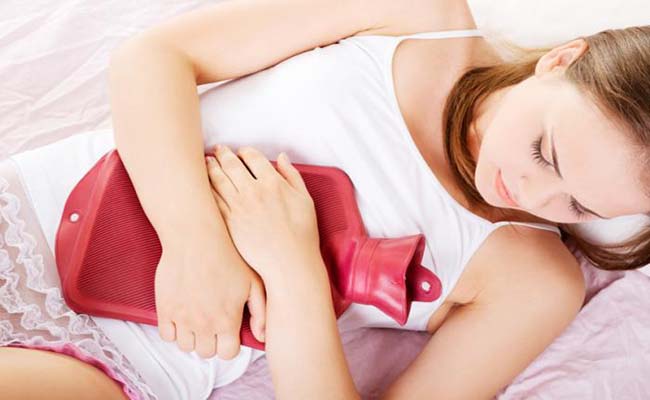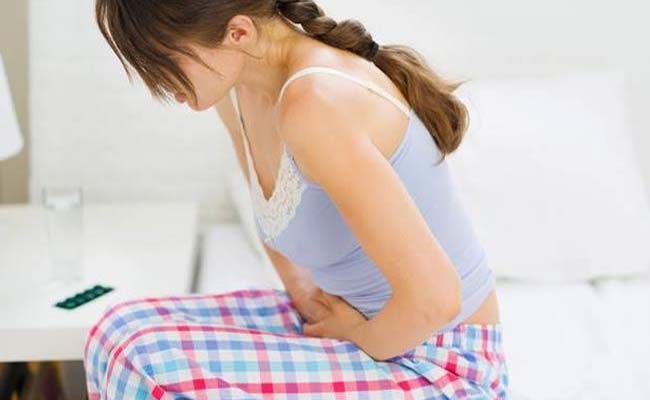Contrary to popular belief menstrual pain is not a natural part of the menstruation process. It is entirely possible to eliminate all pain and discomfort with acupuncture, Chinese medicine and a few adjustments to your lifestyle. Read on to find out how Acupuncture and Traditional Chinese Medicine can help you with Period Pain.

Period Pain Case Study
Catherine has experienced severe period pain since her first period at the age of 15. Her pre-menstruation symptoms include sore breasts, headaches, emotional instability, fatigue and severe lower abdominal pain. She also experiences a long menstrual cycle compared to a normal 28 day cycle. For more information on how AcuNatural Health Acupuncture Brisbane was able to assist Catherine, click here.
What is Period Pain?
Period pain is understood as pain in the belly and pelvic area during menstruation, which may start several days or shortly before the menstrual period, peak within 24 hours after the onset of the bleeding and usually subside as menstruation tapers off. Severe pain interferes with daily activities, which affects 50% of women and 90% of adolescent girls. Women may experience sharp or aching pain that comes and goes. This discomfort can extend to the lower back or legs.
There are two types of menstrual cramps: primary and secondary dysmenorrhea.
Primary dysmenorrhea is menstrual pain that occurs around the time that menstrual periods first begin in otherwise healthy young women. This pain is usually not related to a specific problem with the uterus or other pelvic organs. Increased activity of the hormone prostaglandin, which is produced in the uterus, is thought to play a role in this condition.
Secondary dysmenorrhea is menstrual pain that develops later in women who have had normal periods and is often related to problems in the uterus or other pelvic organs, such as:
As many as half of menstruating women are affected by dysmenorrhea,
and of these, about 10% have severe dysmenorrhea, which greatly limits activities for one to three days each month.
Who gets Period Pain?
About half of women experience menstrual cramps, and about 15% describe the pain as severe.
Certain psychological factors such as emotional stress may also increase the likelihood of experiencing painful menstruation. Other factors which may increase the likelihood of experiencing pain during menstruation include:
What are the symptoms of Period Pain?
What are the causes of Period Pain?
Blood must be abundant and move adequately for a normal pain-free period to occur. In Traditional Chinese Medicine (TCM) the cause of menstrual pain is stagnation of chi and blood. The liver in TCM stores the blood and is considered the “woman’s organ”. The liver also promotes the smooth flow of Qi and blood throughout the body. When the liver is not working properly, or is “stagnant”, the Qi and blood will not flow through the body properly and pain will result. The other organs which can be involved in menstrual pain are the stomach, spleen and kidneys.
What are the Western Medications to deal with Period Pain?
Your doctor may prescribe medications nonsteroidal anti-inflammatory drugs (NSAIDs or hormone medications (oral contraceptives) to relieve menstrual pain, however these drugs may also may have side effects of nausea, upset stomach, indigestion, peptic ulcer and diarrhoea.
How can Acupuncture and Traditional Chinese Medicine help relieve Period Pain?
Your practitioner will treat the symptom of pain by moving stagnant chi and blood with acupuncture, and also address the root-cause of the pain with herbs. Some people may think that having cramps is just simply part of the unfortunate things that women go through; however, according to traditional Chinese medicine, it reveals that there is an imbalance occurring in the body which can be resolved.
Acupuncture has long been known to help reduce symptoms of pain in the body. Acupuncture treatment can counteract the pain-producing factors in the body by increasing the endorphin levels in our blood. Most importantly, Acupuncture and Traditional Chinese Medicine can be used to uncover the root causes of the body’s imbalance which is causing painful menstruation. Work can be done on the endocrine system to regulate our hormones, ensuring that the amounts of estrogen and progesterone stay within normal and complimentary ranges. Sometimes Chinese herbs are also employed to regulate the endocrine system.
The National Institutes of Health recommend acupuncture either by itself or along with other treatments for menstrual pain.
Who needs Acupuncture and Traditional Chinese Treatment for Period Pain?
Those who experience negative side effects from the pill and IUDs. Those who choose to have natural medicine to manage their menstruation pain. Young people, as they should avoid taking the pill to regulate their menstruation pain in the first two years, and allow for their ovaries to develop and regulate to their changing systems Those who worry about conceiving latter on after taking the pill, should consider natural heath alternatives to manage their pain or menstrual irregularities.
Are there any side effects from treating Period Pain with Acupuncture and Traditional Chinese Medicine?
No, acupuncture and Traditional Chinese Medicine for menstruation pain is very safe. Some patients may experience some drowsiness or slight bruising.
How many sessions of Acupuncture are needed to treat Period Pain?
Reducing painful periods is very successfully treated with acupuncture and Chinese herbal medicine. A reduction in the presenting symptoms is usually experienced within the first month of treatment and then improvement continues and is maintained over successive menstrual cycles. It is usually recommended to come once a week for the first menstrual cycle and then a patient can drop down to less treatments based on their response. Each woman will discuss an individualized treatment strategy with Jane Ma.
Scientific Case Studies
Two studies have compared the effects of acupuncture to NSAID treatments for dysmenorrhoea.
One published in the European Journal of Obstetrics, Gynaecology and Reproductive Biology provided evidence that acupuncture is very effective to relieve primary period pains. The study involved 35 young women with a diagnosis of primary dysmenorrhoea. They were divided into two groups: acupuncture group and medicine group. One month treatments were given to these women with dysmenorrhoea and the pain scores were assessed. They found that acupuncture is as effective as NSAID to reduce period pain. While 52% of women in the medication group had decreased pain, nearly 70% of women in the acupuncture group had reduced pain. Significant pain reduction was experienced without any of the negative side effects associated with taking drugs such as pain killers.
A second study compared three treatments for dysmenorrhoea: ibuprofen, electro-acupuncture plus a placebo supplement and electro-acupuncture plus a herbal supplement called Tao Hong Si Wu Wan ( a traditional Chinese remedy for menstrual pain that is a combination of peach seed; safflower; Chinese angelica; Szechwan lovage; rhizome; white peony root; rehmannia root). The women received the treatments for a total of three months and were asked to evaluate their symptoms at the beginning and end of the study.
Both acupuncture groups had significantly better outcomes however, the women who received a combined treatment of acupuncture and herbal supplements experienced the best pain relief. They also had better long-term relief of symptoms compared to the electro-acupuncture only and ibuprofen groups.

How should I approach Acupuncture and Traditional Chinese Medicine Treatments?
Approach Acupuncture and Traditional Chinese Medicine with an open mind and the knowledge that it has the power to open doors Western medicine may not be able to, by working with doctors to deliver the best treatment to you.
